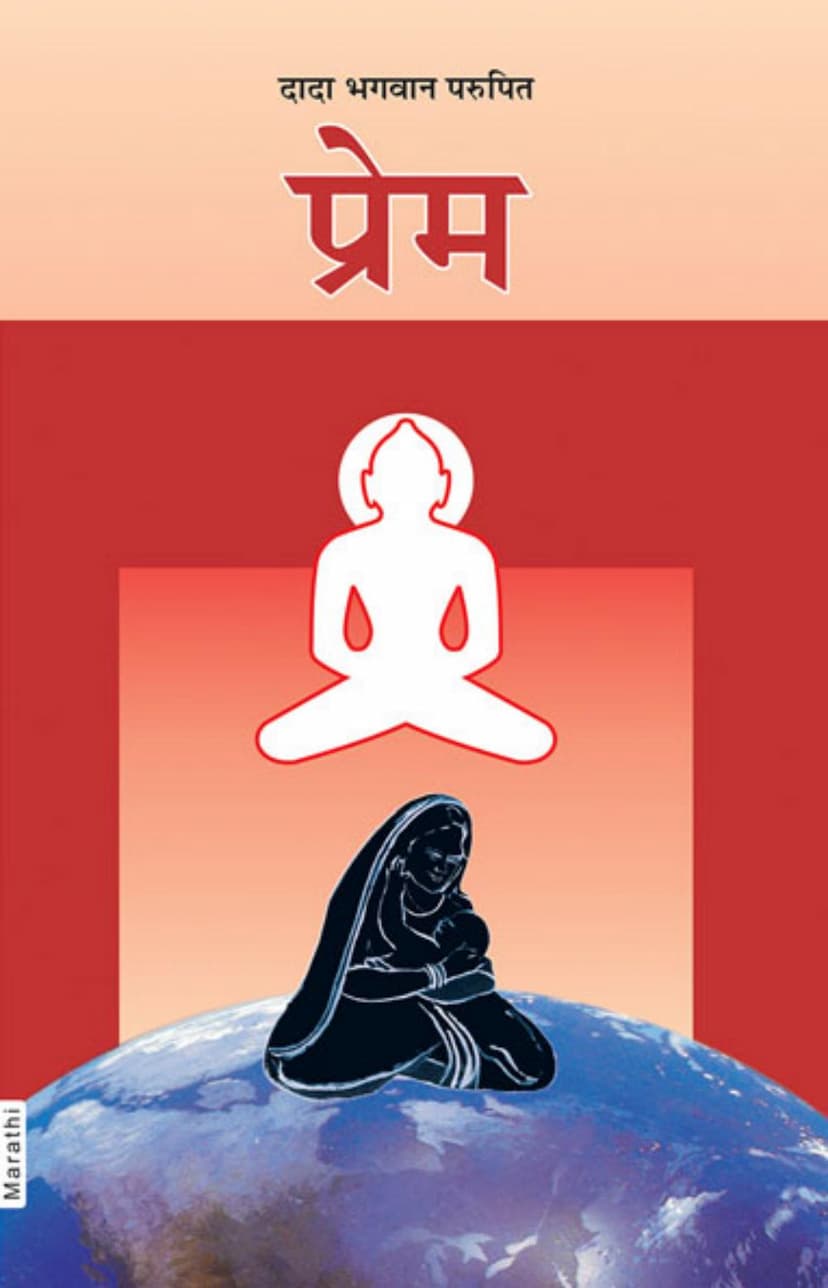Pure Love Marathi
Added to library: September 2, 2025

Summary
This Marathi text, "Pure Love" (प्रेम), authored by Dada Bhagwan and published by Dada Bhagwan Aradhana Trust, explores the true nature of love from a spiritual perspective. It distinguishes between genuine love and worldly attachments (aasakti), emphasizing that true love is selfless, unchanging, and unconditional.
Here's a comprehensive summary of the key themes and teachings presented in the book:
1. Defining True Love:
- Unchanging Nature: True love is defined as something that neither increases nor decreases. It remains constant regardless of circumstances. Anything that waxes and wanes is considered attachment or moh.
- Selflessness and Lack of Expectation: Genuine love is free from desires, expectations, selfishness, or fault-finding. It flows continuously without being affected by praise or criticism.
- Unconditional Nature: The book uses powerful examples to illustrate that true love persists even when faced with negative behavior or criticism. For instance, a truly loving person would not be affected if someone insulted them multiple times, understanding it as a recording playing, not a personal attack.
2. Differentiating Love from Attachment (Aasakti) and Moh:
- Attachment: The text extensively contrasts love with attachment (aasakti) and moh. Attachment is characterized by desires, expectations, and a sense of "mine" and "yours." When expectations are not met, attachment leads to disturbance and unhappiness.
- Moh: Moh, or infatuation, is also a form of attachment driven by superficial qualities or temporary pleasures. It fades when those qualities change or disappear.
- The Illusion of Love: The book argues that what people commonly perceive as love in the world—between parents and children, spouses, friends, etc.—is largely attachment and moh, driven by selfish interests and temporary satisfaction.
3. Examples and Illustrations:
- Parental Love: The text uses the example of parents who are overjoyed when their child scores high marks but quickly become critical if the child makes a mistake. This demonstrates that their love was conditional and based on expectations, hence attachment.
- Spiritual Love: In contrast, the love of enlightened beings (Gyanis) and the Divine is presented as pure and unchanging. They see the Self within all beings, irrespective of their outward actions.
- The Role of Selfishness: The presence of "I" and "mine" (aham and mam) is identified as the root cause of selfishness and, consequently, the absence of true love. When the sense of "mine" dissolves, selfishness ceases, paving the way for pure love.
4. The Path to Pure Love:
- Self-Realization: The core message is that true love arises from Self-realization. When one recognizes their true Self (the Soul), the illusion of separateness and the ego (ahamkar) dissolve.
- Awareness and Observation: The teachings encourage observing one's own internal states and actions, understanding the nature of attachment, and gradually shedding it.
- The Role of the Gnani: The Gnani Purush (the enlightened one) is presented as the embodiment of pure love. By following their guidance and adhering to their commands, one can progress towards experiencing this pure love.
- Unconditional Acceptance: The ultimate expression of pure love is to see everyone as faultless, understanding that any perceived faults are a result of one's own misperceptions or karma. This leads to unconditional love for all beings.
5. Love and the Divine:
- The Divine as Pure Love: The book asserts that pure love is synonymous with the Divine (Parmatma). Where pure love exists, the Divine manifests.
- The Nature of God's Love: God's love is described as impartial, unchanging, and all-encompassing. It is not dependent on one's actions or virtues.
6. Practical Guidance:
- Speech and Action: The teachings advise speaking gently and lovingly, even when correcting someone, rather than using harsh words. This approach fosters understanding and ultimately leads to a positive outcome.
- Non-Attachment: The ultimate goal is to cultivate non-attachment (anasakti) through self-knowledge. This doesn't mean withdrawing from the world but engaging in it without being bound by desires or expectations.
- The Power of Love: The book emphasizes that love is the ultimate force that can transform the world and overcome all conflicts.
In essence, "Pure Love" by Dada Bhagwan is a profound spiritual guide that aims to liberate readers from the suffering caused by conditional love and attachments. It offers a path to experiencing the divine, unchanging love that resides within, accessible through self-realization and adherence to spiritual principles.